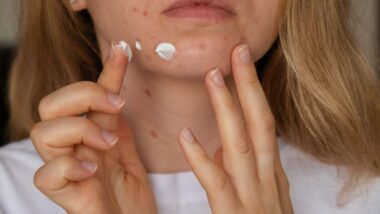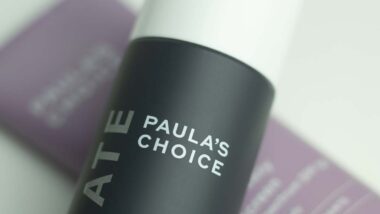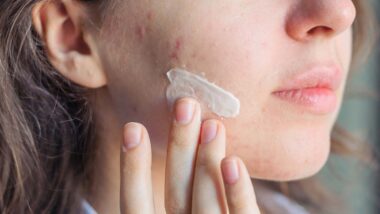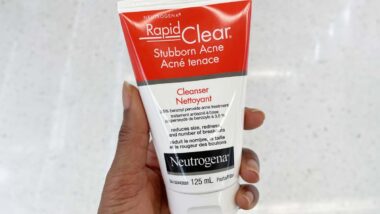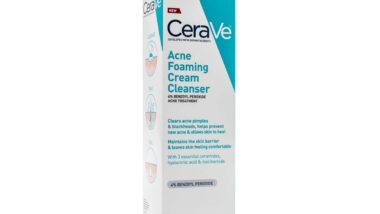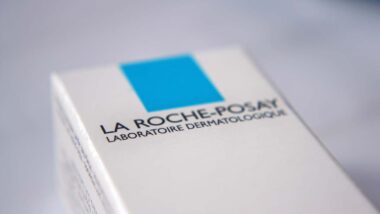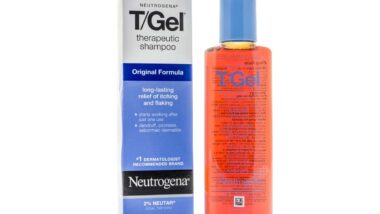Top Class Actions’s website and social media posts use affiliate links. If you make a purchase using such links, we may receive a commission, but it will not result in any additional charges to you. Please review our Affiliate Link Disclosure for more information.
The Justice Department and Securities & Exchange Commission are currently investigating Johnson & Johnson, according to a report released by the New York Times.
A securities filing states that Johnson & Johnson is cooperating with government inquiries as to what the company may have known about the risk of asbestos contamination in Johnson & Johnson’s baby powder.
Did Johnson & Johnson cover up the presence of asbestos in talc and baby powder?
A Reuters report released in December 2018 highlights that the company might have known about asbestos in baby powder products for years, despite the fact that the company continued to promote their products as safe for regular use.
The question of whether or not talc containing baby powder increases a user’s risk of developing cancer is becoming more pressing in light of the number of lawsuits filed over this issue. According to the Reuters report and New York Times investigations, Johnson & Johnson might have known about the presence of asbestos in their talc baby powder product for decades but concealed this from the general public.
The Wall Street Journal reports that Johnson & Johnson CEO Alex Gorsky testified for the first time in January 2020 on the asbestos in baby powder issue. In a New Jersey court, the CEO stated that he relied on information from people within his company when he had previously made statements assuring the public that Johnson & Johnson baby powder does not contain asbestos.
Gorsky extrapolated, saying that his statements were made based on analyses by experts employed at the company, as opposed to based on his own knowledge of science. According to Gorsky, the information presented to him by company experts indicated that Johnson & Johnson’s talc products, including baby powder, are free from asbestos.
Gorsky’s statement about where his information came from was part of a testimony that the CEO gave in a lawsuit filed against the company. This lawsuit is one of almost 17,000 lawsuits claiming that the pharmaceutical giant was aware of the presence and danger of asbestos in its talc products, but sold them to the public anyway.
According to the Wall Street Journal, Gorsky then explained in his testimony that he has since retracted his statement that Johnson & Johnson’s talc is asbestos-free. Reportedly, this retraction was spurred by a report issued by the U.S. Food and Drug Administration. The FDA report released in October 2019 indicated that there was indeed asbestos found in Johnson & Johnson talc.
Despite continuing to maintain that company tests did not show that the presence of asbestos in Johnson & Johnson talc products, the company did recall around 33,000 units of talc-containing products after the FDA’s report was released.
How far back could Johnson & Johnson have known about asbestos in talc?
According to the Reuters investigation allegations, Johnson & Johnson knew about asbestos contamination in their products long after they had made statements that it was asbestos free.
Several decades of talc products created by Johnson & Johnson turned up positive for asbestos presence; one of these goes back as far as 1957. However, the presence of asbestos in talc products was never revealed to the public and the company continues to claim purity of their talc products ingredients, denying product contamination claims of asbestos in baby powder.
Have any successful lawsuits been filed against Johnson & Johnson?
Yes. In July 2018, a jury awarded a record-breaking $4.69 billion to several women who sought compensatory and punitive damages after developing cancer they blamed on talc use. That amount was decreased to $2.1 billion by a Missouri appeals court on June 23, 2020, according to the New York Times.
The civil suit saw six of the 22 plaintiffs pass away before the trial even began. A lawyer representing the plaintiffs told the New York Times that five more women died between the end of the trial and the appeal decision.
Even though Johnson & Johnson denied its talc powder products contained asbestos, test results showing otherwise were presented at court. The company tried to convince judge and jury that the tests were hindered by inexact testing methods and perhaps even outside contamination.
Johnson & Johnson said it plans to ask the Supreme Court of Missouri to review the ruling.
Other verdicts, including a $117 million verdict in New Jersey have been awarded to Johnson & Johnson consumers, though the company continues to appeal these decisions. In fact, an appeals court recently reversed the nearly $120 million verdict and ordered new trials in April 2021.
While facing widespread legal action, Johnson & Johnson announced in May 2020 that it was discontinuing sales of its talc-based baby powder throughout North America. Moving forwards, the company will only sell cornstarch-based powder.
A few months later, the company agreed to settle 1,000 lawsuits with a $100 million settlement.
In August 2022, Johnson & Johnson made the decision to stop selling talc-based baby powder worldwide. The company will replace these products with cornstarch-based baby powders.
“We continuously evaluate and optimize our portfolio to best position the business for long-term growth,” the company said in a press release.
“This transition will help simplify our product offerings, deliver sustainable innovation and meet the needs of our consumers, customers and evolving global trends.”
The company still faces at least 19,000 lawsuits alleging its Johnson’s Baby Powder and Shower to Shower body powder products contained talc that was possibly tainted with trace amounts of asbestos, which over time, could cause cancer to develop. Most of the lawsuits relate to ovarian cancer, which women say they developed due to using the powders in their genital area. Other lawsuits point to the powders as the alleged cause of mesothelioma cancer, either by swallowing or inhaling asbestos fibers.
Is talc dangerous?
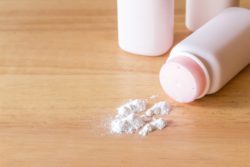
According to the U.S. Food and Drug Administration (FDA), asbestos and talc often occur near each other naturally in the earth, meaning that talc could be naturally contaminated with asbestos.
In the past, scientists have been skeptical about whether or not exposure to talc directly increases the risk for cancer because there was no biological mechanism that could have drawn this clear connection. However, the World Health Organization’s International Agency for Research on Cancer (IARC) classifies classifies talc used genitally as “possibly carcinogenic to humans.”
Although the safety of talc is debated, experts usually agree that asbestos in talcum powder can cause cancer. The IARC classifies asbestos-contaminated talc as “carcinogenic to humans.”
In order to prevent consumer exposure to asbestos through talc, most manufacturers and talc providers test their talcum powder for the presence of asbestos. Although this helps prevent asbestos exposure, some consumers argue that asbestos makes it way into finished talc products.
If you think that you developed cancer because of regular use of talc products made by Johnson & Johnson, you could be the latest person to file a legal claim against the company. Consumers who think that the company knew about the dangers of asbestos in talc and failed to share these concerns with the public are investigating their options for litigation; Top Class Actions can help you find a lawyer to assist with your case.
Do YOU have a legal claim? Fill out the form on this page now for a free, immediate, and confidential case evaluation. The attorneys who work with Top Class Actions will contact you if you qualify to let you know if an individual lawsuit or class action lawsuit is best for you. [In general, baby powder cancer lawsuits are filed individually by each plaintiff and are not class actions.] Hurry — statutes of limitations may apply.
ATTORNEY ADVERTISING
Top Class Actions is a Proud Member of the American Bar Association
LEGAL INFORMATION IS NOT LEGAL ADVICE
Top Class Actions Legal Statement
©2008 – 2024 Top Class Actions® LLC
Various Trademarks held by their respective owners
This website is not intended for viewing or usage by European Union citizens.
Get Help – It’s Free
Join a Free Baby Powder Cancer Class Action Lawsuit Investigation
If you used Johnson’s Baby Powder, Shower to Shower, or another talcum powder product and were diagnosed with ovarian cancer, you may have a legal claim. Family members of loved ones who died of ovarian cancer can also join. Submit your information now for a free case evaluation.
An attorney will contact you if you qualify to discuss the details of your potential case at no charge to you.
PLEASE NOTE: If you want to participate in this investigation, it is imperative that you reply to the law firm if they call or email you. Failing to do so may result in you not getting signed up as a client or getting you dropped as a client.



